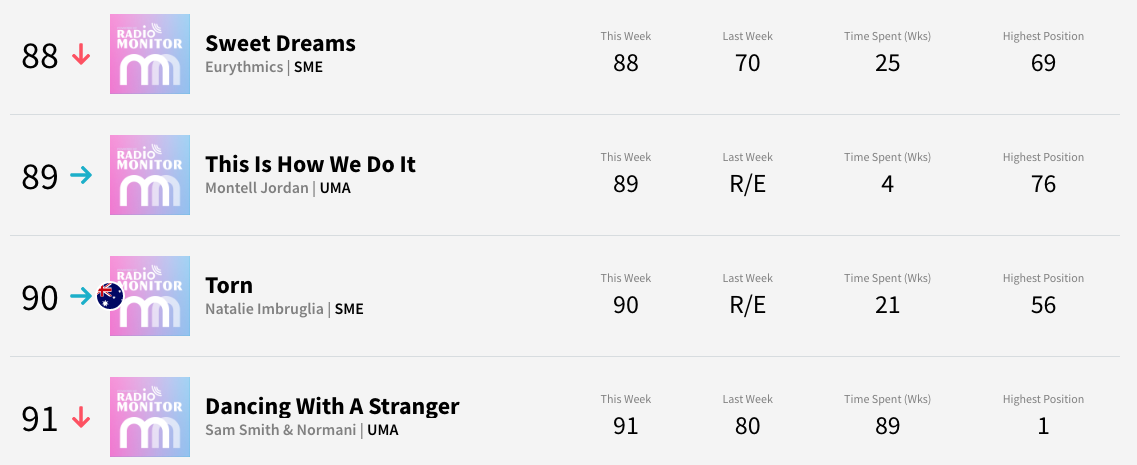SCA’s Mickey Maher on why new music isn’t playing ‘a starring role’ on the Hit Network anymore

The economic impact of the global health crisis might have crippled much of the music industry this year, but it has also ripped the rug from under commercial radio.
Changing listening habits, a weak advertising market and mass layoffs are among the many uncomfortable challenges staring down radio bosses at the big networks right now.
Meanwhile, Spotify also continues to double down on its anti-radio stance, with an agenda to kill the format as we know it, or, as Daniel Ek eloquently puts it: “Everything linear dies”.
But do radio’s top brass really see Spotify as a direct competitor in the attention economy? “Absolutely, yes,” according to Southern Cross Austereo’s head of music, Mickey Maher.
“I think any content creators or music platforms are competitors,” he tells me. “And I think that can be really healthy, and hopefully that pushes us all to be better. Competition has helped improve the quality of radio over the years.
“While we want to beat each other, I think the worst thing we can do is try and kill each other. The success of radio is going to come from us as an industry, moving the industry forward.”
What happens in radio, to radio, matters greatly to the music industry.
The medium remains a major source of revenue for record labels large and small, publishers and the artists signed to them. But the pandemic and subsequent tightening of purse strings have resulted in more centralised playlists and less space for new music.
SCA is Australia’s biggest commercial radio broadcaster and just one of the networks – despite its large regional footprint – to suffer at the hands of outside forces.

Pictured: Head of music Mickey Maher celebrated 25 years at SCA last month.
As first reported by Radio Today, the SCA-owned Hit Network recently announced its biggest overhaul in a half-decade and, one month later, axed 19 of its regional breakfast shows.
The rebrand signalled a new starting line for the once unstoppable brand, including a new music strategy to appeal to a broader target audience of 30 to 54-year-olds.
Maher says new music is no longer top of the agenda as it widens the playlist to include more familiar songs from years gone by. So should the labels be worried?
“I got that same feedback when I walked the labels through our change in strategy for the Hit Network. And I understand that, and I respect that,” Maher tells me.
“We’re in a business and we need to succeed, and to do that we had to change our strategy and move our target, and move with where we believe the long-term strategy for Hit needs to be.
“So yes, new music isn’t playing a starring role as it once did on the Hit Network, but it continues to play an important role. Our target audience still wants to feel up to date with what’s new, we just play less new songs and we’re churning through them less.”

Pictured: TMN’s Hot 100 chart is flooded with catalogue songs right now.
For evidence, take a look at this week’s TMN Hot 100 airplay chart. You’ll find many hits from previous decades reappearing on the chat, like Santana and Rob Thomas’ ‘Smooth’ or ‘Sweet Dreams’ by the Eurythmics among more current bops, like Shawn Mendes’ newbie ‘Wonder’.
When asked how catastrophic events like bushfires, pandemics, and recessions impact the music cycle, Maher says there is enough historical data to build a case for playing more throwbacks as listeners flock to music they are more familiar with in times of crises.
“If you read some of the reports around the world from the streaming services, they show streaming of new music is to a degree down a bit, but the streaming of catalogue music is up significantly. So I think people are discovering artists or songs they had forgotten about.
“We typically get a pulse from the audience,” Maher explains. “I mean, we’re lucky enough that we’ve got pretty healthy communities both across Hit and Triple M, where we can tap into our audiences and get a sense for how you’re feeling, and what are you wanting.”
How listeners are “feeling” could, however, differ greatly across the country.
Radio consumers in Melbourne will be starting their day very differently to those in Perth, for example. But playlists are fast becoming more centralised as budgets shrink and more networking creeps in – something SCA and its rivals are not immune to.
“All the formats and the logs are complimentary of each other, but there are subtleties, taking into consideration the competitive landscape, and I guess the nuances for the markets.
“Melbourne, Brisbane and Perth Hit stations follow the same log. In Sydney, where we’re sitting a lot older, and Adelaide’s naturally a bit of an older market, follow suit. And then our regional markets take the one log as well, which is centralised.”
Maher also shared some advice for labels and artists trying to make sense of radio’s changing landscape, for those poking around playlists in a bid to find their space: make better songs.
“The quality of the music’s got to be up to scratch with what you’re up against,” he tells me, “and you’re up against some massive artists globally.
“Our music team can decide what we add, but ultimately what stays on our playlist is researched with the audience. And if they say to us, ‘I don’t fucking like it’, then why would we keep playing it? It just doesn’t make sense.”






























